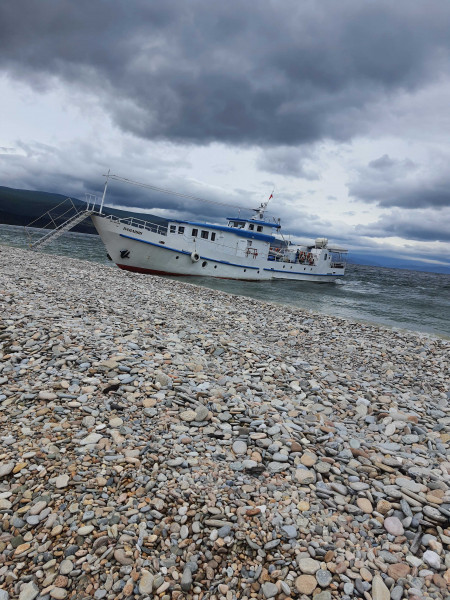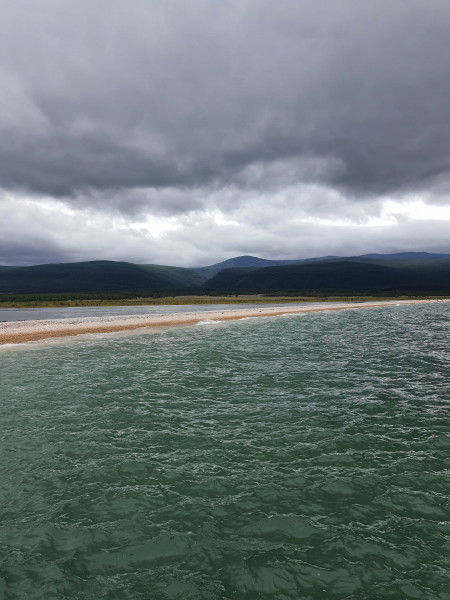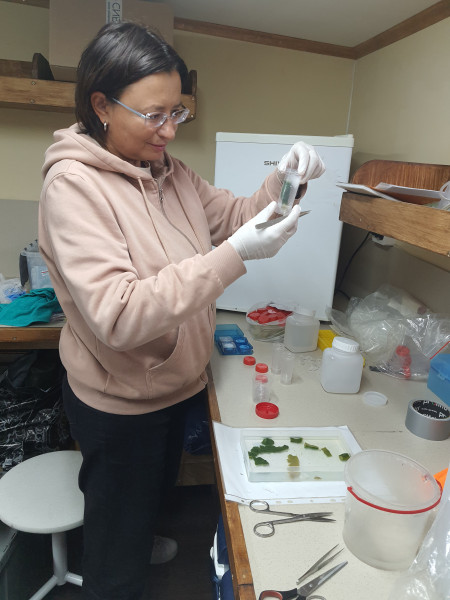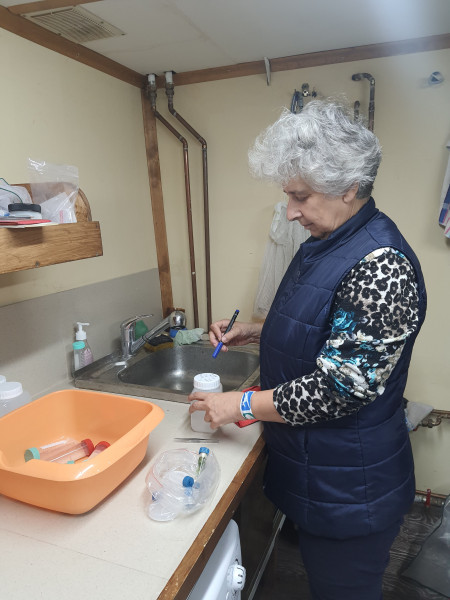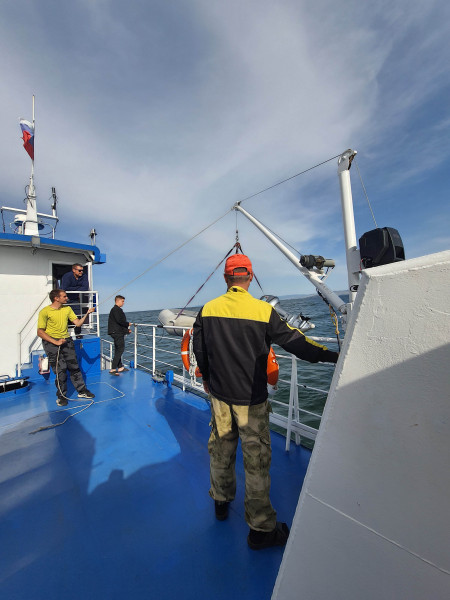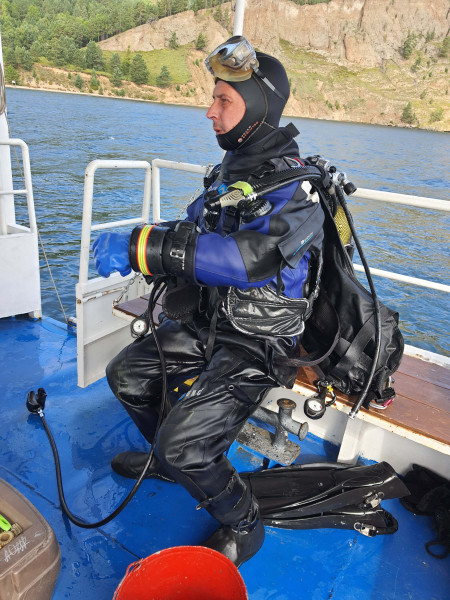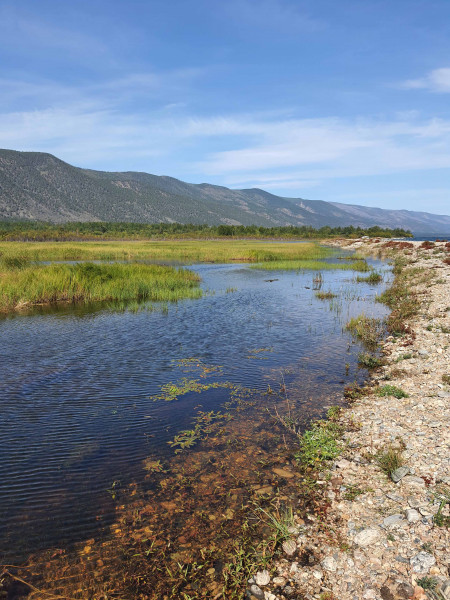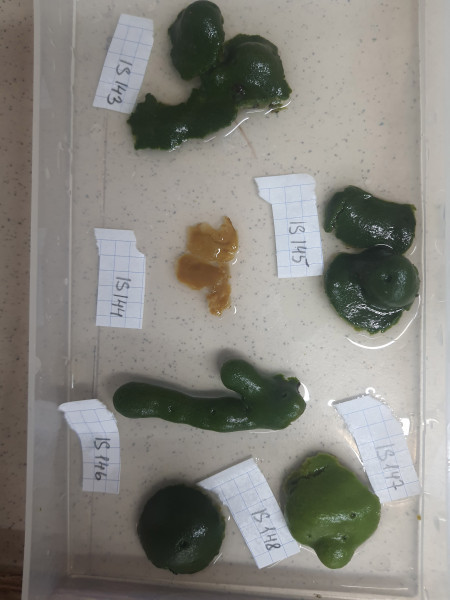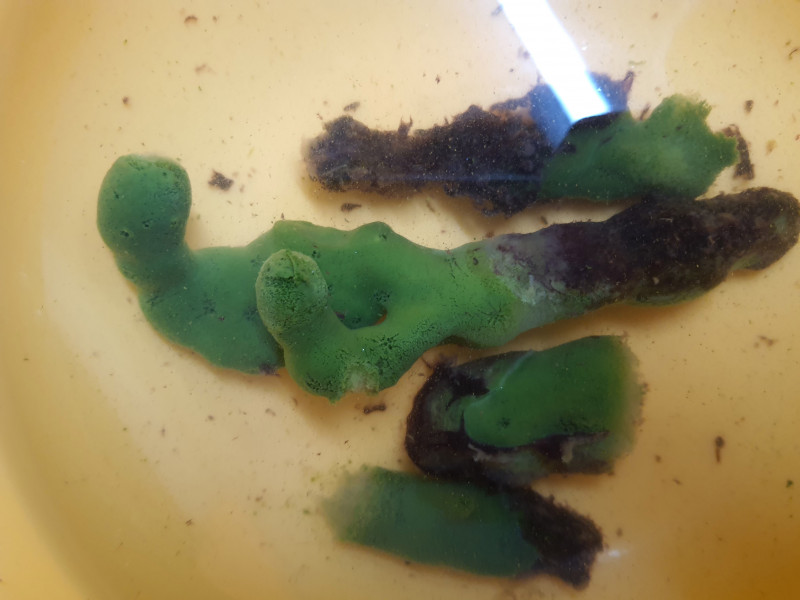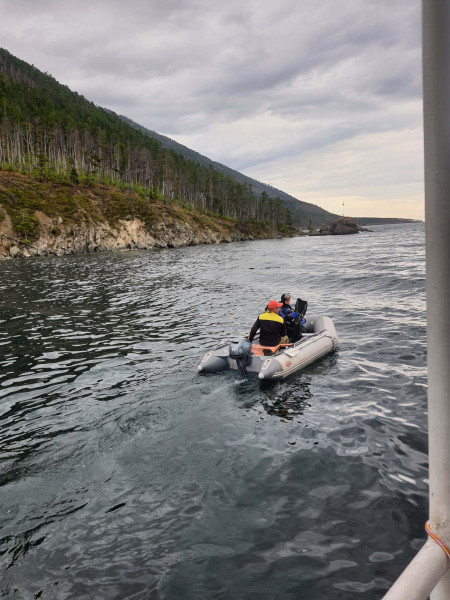Expedition on board the R/V “Papanin” on September 04-11, 2023
The fieldworks were carried out within the State assignments “Genomics of symbiosis. Study of interactions between the host and consortia of microorganisms and parasites” (0279-2021-0011) (led by Belikov S.I.), “Study of seasonal and long-term transformations of the state of water bodies and watercourses in East Siberia in the context of climate change, geological environment and anthropogenic loads” (0279-2021-0005) (led by Fedotov A.P.), and “Study of viral and bacterial communities as the basis for the stable functioning of freshwater ecosystems and an effective response in conditions of anthropogenic impact” (0279-2021-0015) (led by Belykh O.I.)
The aim of the expedition was to collect samples of the Lake Baikal sponges for genomic, transcriptomic and metagenomic studies of evolution, symbiosis and stress response. Sponges of the family Lubomirskiidae were collected to analyze biodiversity and evolution by genomic and transcriptomic analyses. Sampling was carried out at 8 stations of Southern, Middle and Northern Baikal at depths from 1 to 35 meters. Water samples for chemical analysis were also collected at 8 stations. At two stations, sponges were collected by depth to study adaptations.
Spongillidae sponges were also collected in lakes of Maloye More area (Kurma settlement and Zama settlement). We collected sick and healthy sponges in areas subject to anthropogenic influence (Listvyanka settlement) and in ecologically favorable areas (Elokhin Cape, Izhimei Cape) to study the transcriptomics and metagenomics of the stress response. High-quality DNA was isolated to analyze genes of BAS synthesis in sponges using genomic methods. Samples of living sponges were collected for further experiments on the effect of temperature and chemical stress on sponges based on the freshwater aquarium complex of Baikal hydrobionts of LIN SB RAS.
Russian express systems for the detection of microcystins - hepatotoxins synthesized by cyanobacteria in biofilms formed on rocks and “sick” sponges in the littoral zone of Lake Baikal were tested. Biofilm samples were collected to search for and identify microcystin synthesis genes and paralytic shellfish toxins using specific markers. Samples of cyanobacteria living on sponges and rocks were also collected for detection and identification of the type and variants of cyanotoxins using mass spectrometry. Screening of samples during the expedition for the presence of microcystins in extracts of cyanobacterial biofilms of rocks and sponges showed their absence in all samples tested.
Within the RNF project “Laying the groundwork for using ddRAD sequencing to analyze the phylogeny of Lubomirskiidae» ” (22-24-01037) (led by V.B. Itskovich), samples of 6 sponge species were collected for genomic ddRAD analysis of intra- and interspecific evolutionary relationships of the Baikal sponges, clarification of systematics, and identification of cryptic species.




